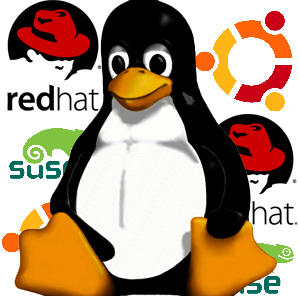Scientific Communities Using Linux

Many Scientific Communities are now using the Linux Operating System. Here is a list of a few that do:
- NASA decided to switch the International Space Station laptops running Windows XP to Debian 6.[135][136]
- Both CERN and Fermilab use Scientific Linux in all their work; this includes running the Large Hadron Collider or the Dark Energy Camera[137] or the 20,000 internal servers of CERN[138]
- WLCG is composed of 576 sites with more than 390,000 processors and 150 Petabytes of Storage and uses Linux on all its nodes.[139]
- Other Scientific Communities using Linux include Canada's largest super computer, the IBM iDataPlex cluster computer at the University of Toronto uses Linux as its operating system.[140][141]
- The Internet Archive uses hundreds of x86 servers to catalogue the Internet, all of them running Linux.[142]
- ASV Roboat autonomous robotic sailboat runs on Linux[143][144]
- Tianhe-I, the worlds fastest super computer as of October 2010, located at the National Centre for Supercomputing in Tianjin, China runs Linux.[145][146]
- At the University of Portsmouth, one of the Scientific Communities in the United Kingdom, they have deployed a "cost effective" high performance computer that will be used to analyse data from telescopes around the world, run simulations and test the current theories about the universe. Its operating system is Scientific Linux. Dr David Bacon of the University of Portsmouth said: "Our Institute of Cosmology is in a great position to use this high performance computer to make real breakthroughs in understanding the universe, both by analysing the very latest astronomical observations, and by calculating the consequences of mind-boggling new theories...By selecting Dell’s industry-standard hardware and open source software we’re able to free up budget that would have normally been spent on costly licences and reinvest it."[147]
- In September 2011, ten autonomous unmanned air vehicles were flown in flocking flight by the École Polytechnique Fédérale de Lausanne’s Laboratory of Intelligence Systems, one of the Scientific Communities in Lausanne, Switzerland. The UAVs each sense each other and control their own flight in relation to each other, each has an independent processor running Linux to accomplish this.[148]
Also see: Where Linux Makes Sense
